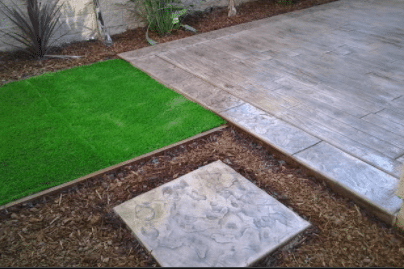Why Should You Consider Sealing And Finishing Your Concrete In National City?
Concrete is strong, durable, and cost-effective; however, concrete is porous. For this reason, concrete should be sealed to prevent it from leaching chemicals into the environment. Let’s consider why concrete needs sealing in the first place.
Composition Of Concrete
Concrete is an artificial material consisting of sand or crushed stone (the aggregate), water (cement), and gravel or crushed rocks. Limestone is often added to concrete in order to harden it, and Portland cement is used to strengthen the concrete. Concrete is poured into forms made of wood, metal, or fiberglass so that it can maintain its desired shape while it dries and hardens over time into a solid mass with excellent structural capabilities due to the compressive strength of concrete.
Concrete’s primary constituent, cement, is mixed with water to form concrete (this process is known as hydration). When concrete hydrates, it produces heat; this exothermic reaction causes concrete to expand and rise in certain circumstances. Concrete is porous by nature; it absorbs liquids easily, which is how concrete gains strength. Unfortunately, concrete absorbs a variety of chemicals and pollutants from the environment as well, which can include fertilizers, pesticides, and engine oil. These surface impurities pose a serious problem for concrete that’s exposed to the elements.
Sealing Concrete
In addition to absorbing more moisture from rain or ice than other materials would, concrete also has a tendency to form cracks, which further exacerbates concrete’s porosity. Sealing concrete helps prevent concrete from absorbing chemicals and pollutants so that concrete can remain strong over time without breaking down.
Prevention is key with concrete sealers because water penetration causes concrete damage . Concrete sealers are designed to protect concrete slabs against stains, dust, debris, and other pollutants.
If Not Properly Sealed
If concrete is not properly sealed, concrete can be damaged by weathering or pollution. While concrete slabs are designed to be durable, they require protection against the elements in order to maintain strength over time. Concrete sealers should be reapplied periodically in order to remain effective, especially after concrete has been pressure-washed.
If concrete is not sealed, concrete can quickly absorb chemicals and pollutants from the environment which can damage concrete over time. Concrete that’s sealed remains strong and durable without absorbing chemicals and other substances from the environment.
Concrete Sealant
Concrete sealers are water-based or solvent-based, depending on the concrete sealant manufacturer. Concrete stains are typically solvent-based, while concrete paint is water based. The concrete sealant should be applied to concrete according to the concrete sealant manufacturer’s recommendations for best results.
Durable And Long-Lasting
While concrete itself is durable and long-lasting, concrete is vulnerable to staining and degradation from pollutants. Sealing concrete can prevent concrete from being damaged by chemicals or other substances that may lead to concrete stains or concrete damage.
Use A Primer
Concrete sealers should be applied after concrete has been allowed to cure fully. It’s necessary to use a primer with paint-on concrete sealers to ensure concrete is properly protected. Solvent-based concrete sealants should be tested for their compatibility with fiberglass or other materials that may have been used to form concrete forms.
Conclusion
Concrete should be allowed to cure fully before concrete sealant is applied; concrete primer should always be used with concrete paint or other concrete sealants in order to prevent damage. If you want our concrete contractor services, contact Concrete Contractor National City at (619) 678-0060.
